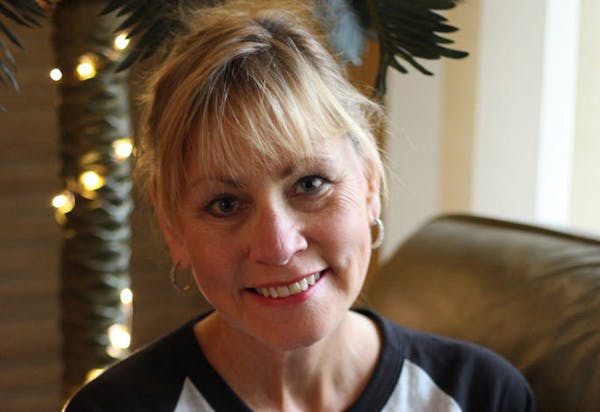When Alice Karpeh worked as a midwife in her native Sierra Leone, she saw birth and death entwined with shocking frequency.
"I saw so many young women dying in childbirth from causes I now know are preventable," she said. "I had a dream that this didn't have to be."
The West African nation has one of the world's highest maternal death rates, according to the World Health Organization. One in 23 women in Sierra Leone dies from complications related to pregnancy and one in five infants does not live to see their fifth birthday.
Karpeh is working to change the grim outcomes for the next generation of mothers and infants. Backed by a team of Minnesota medical professionals, Karpeh is preparing to return to Sierra Leone to oversee the opening of a Birth Waiting Home.
Six years in the works, the medical facility will provide a place where women can be cared for as their due dates near, then receive postnatal care and medical attention for their newborns.
"It's well established that lives are saved when women have skilled care at the time of delivery," she said.
Karpeh, a widow with nine children, fled the brutal civil war in Sierra Leone and arrived in the United States in 1994. At 42, she settled in Brooklyn Center, enrolled at Anoka Technical College and became a licensed practical nurse.
When her career took her to Boynton Health Service at the University of Minnesota, Karpeh began her quest to find partners to help realize her vision for improving health care in Tikonko, her remote home village.
She zeroed in on Dr. Carol Nelson, an internist who worked at the Boynton clinic.
"I remember when Alice approached me. She said, 'I want to tell you about my project and you will help me,' " recalled Nelson. "She told me her story and her dream and I was instantly hooked."
"I'm hard to say no to," Karpeh said. "Carol opened her heart to me. We have the same thought about helping women in need. Now I say she is my sister. We are in this together."
In 2011, Karpeh and Nelson helped found the Rural Health Care Initiative (RHCI), a Twin Cities nonprofit that has since raised thousands of dollars to improve and modernize primary health care in Tikonko.
The two friends have made three extended visits to Sierra Leone, working to set up a sustainable medical outpost there. In addition to establishing the Birth Waiting Home, RHCI trained traditional birth attendants, purchased motorbikes to ferry patients from outlying areas and hired five local health care workers to staff an outreach clinic.
"Alice saw it as her duty to go back and help. She's a very modest and humble person, but when she is in Sierra Leone, she is treated with high respect," Nelson said.
A year ago, Nelson retired from her work as a physician to devote more time to her volunteer position as executive director of RHCI. She's currently studying for a master's degree in the University of Minnesota School of Public Health.
"Knowing medicine isn't enough. I need more understanding about global health," Nelson said.
Karpeh, 62, and Nelson, 64, will again travel to Tikonko shortly after Christmas for the opening of the Birth Waiting Home. Constructed with handmade mud bricks, the facility will provide space to care for 24 women.
"The need is huge but we have accomplished so much," Karpeh said. "By helping mothers, we help a whole society."
Kevyn Burger is a Minneapolis-based freelance broadcaster and writer.
